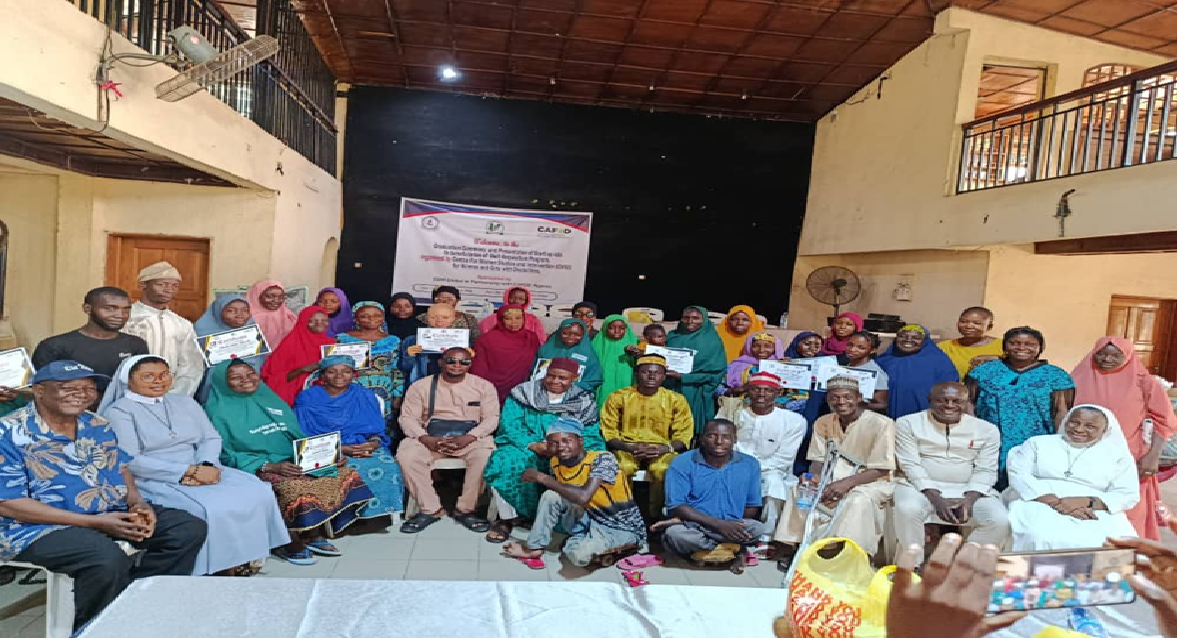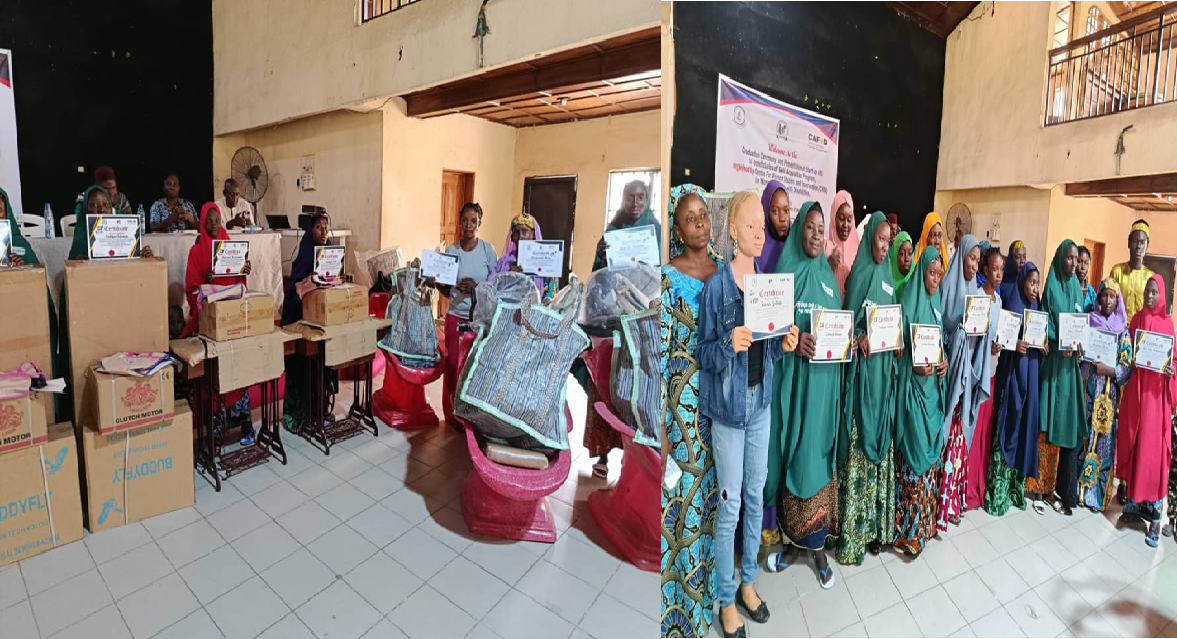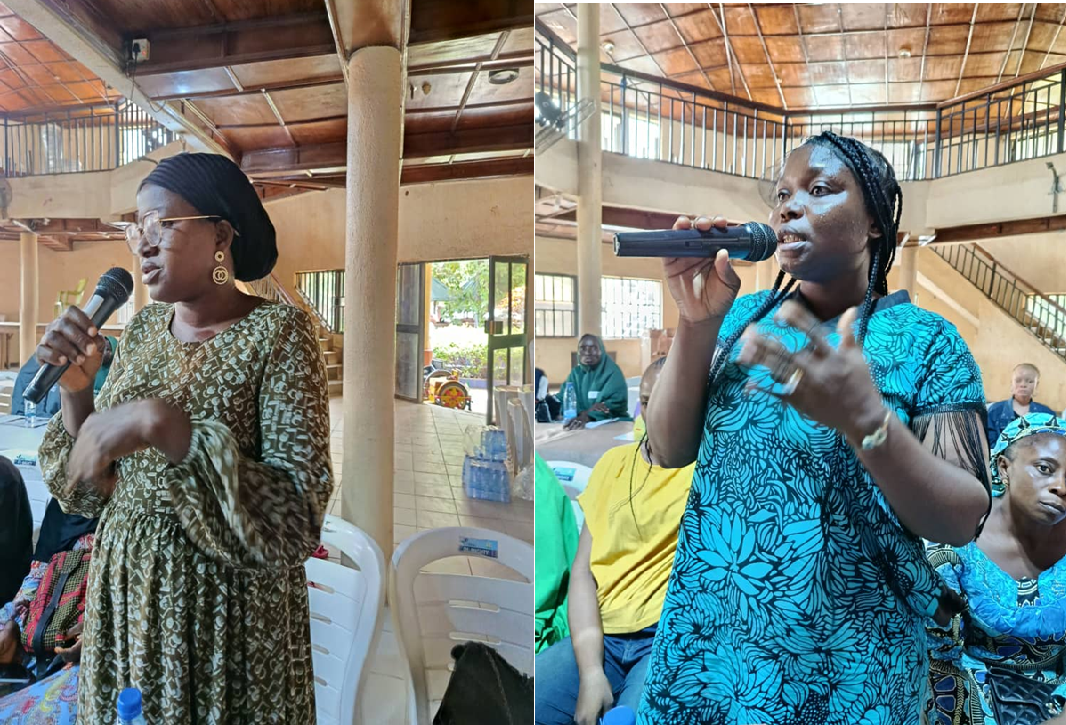Listeners:
Top listeners:
-
play_arrow
104.9FM Best rock music demo
-
play_arrow
Demo Radio Nr.1 For New Music And All The Hits!
-
play_arrow
Demo Radio Techno Top Music Radio
-
 play_arrow
play_arrow
Police Commissioner Launches Weapon and Riot Control Training for FCT Officers Democracy Radio
From Hidden to Heard: CWSI Dismantles Stigma Against Women with Disabilities

By: Bukola Adetinuyo
For years, many women and girls with disabilities in Nigeria have lived in silence, hidden by their families, excluded from opportunities, and left out of national conversations. But in Gwagwalada, a bold initiative is changing that story.
The Centre for Women Studies and Intervention (CWSI), in partnership with CAFOD and Christian Blind Mission (CBM) Global, has launched a pilot empowerment project that’s doing more than teaching skills, it’s shattering the cycle of invisibility that has defined life for many with disabilities.
“Too many remain hidden because of stigma. But we’re seeing them come out, learn, and create. That’s transformation,” said Sister Ngozi Frances Uti, Executive Director of CWSI.
Sister Ngozi Uti, a Catholic nun and outspoken advocate for disability inclusion, emphasised that nearly half of Nigeria’s over 25 million people with disabilities are women and many are at heightened risk of gender-based violence with little or no recourse to justice or support.
According to her, the pilot programme didn’t just offer training in tailoring, hairdressing, and cake making, it equipped participants with startup tools, including sewing machines and kits, to ensure lasting impact.
For the organisers, the message was clear: real empowerment doesn’t stop at training, it begins when tools for independence are placed in the hands of the marginalised. “Training without tools is like giving hope with one hand and taking it back with the other,” Sister Ngozi Uti stated. “We refuse to do that.”
She continued, “Despite limited funding, the programme empowered more than a dozen women and men with disabilities. The ripple effects are already visible. Advocacy efforts alongside the training have seen traditional leaders, local authorities, and communities begin to shift perceptions.”
Bala Madaki Waziri, speaking on behalf of the Aguma of Gwagwalada, acknowledged the change: “This initiative has reduced discrimination. We now see the capacity in people we once overlooked.”
The participants’ stories tell the real impact:
-
Favor Godwin, trained in cake making, called it a divine opportunity: “I now have a skill and a future.”
-
Saadatu Lawal, who had never sewn before, made her own clothes for the graduation: “I’m not just learning — I’m living.”
-
Mujanatu Musa from Zuba can now offers hairdressing services and cosmetic fixes: “I’ve grown from simple plaits to professional styling.”

Trainers, too, were moved by what they witnessed.
“The level of preparation here was beyond what many get,” said Zainab Olayinka.
“These women are getting what many of us never did — a real start,” added Victoria Moses.

The programme also prioritised inclusion at every level. Uche Andrew, representing JONAPWD, noted:
“This is what inclusion looks like — skills, tools, and dignity. These tools are not handouts. They are weapons of self-determination.”
As the pilot concludes, participants are stepping into new roles, not just as entrepreneurs, but as advocates, mentors, and examples of what’s possible when the excluded are finally seen.
“This is only the beginning,” Sister Ngozi Uti declared. “Give us a 3- to 5-year grant, and we will continue to uproot the culture of silence and replace it with opportunity.”
Written by: Democracy Radio
Similar posts
Copyright Democracy Radio -2024


